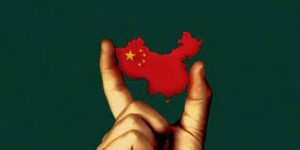
Chinese President Xi Jinping looking a touch less confident than in most pictu
Published January 22, 2024
China’s economy suffers many problems, and some are beginning to look like those that made it so hard for America to break out of its Great Depression in the 1930s. True, China has not experienced a stock market crash. That is different. What China does have in common with that historic America is the loss of confidence in the economy’s structures and in its future. For America, the crash destroyed confidence. For China the problem lies in the policies of now President-for-life Xi Jinping. Prospects are far from promising.
One key sign of this undesirable condition is the drop in bank lending. Always an indicator of business and consumer spending plans, Chinese demands for bank credit in December were, according to the People’s Bank for China (PBOC), 16% below year-ago levels and almost 20% below consensus expectations. This picture is all the more remarkable because Beijing has engaged in considerable stimulus spending on infrastructure, and the PBOC has reduced interest rates during the past year and lavishly provided markets and financial institutions with liquidity, increasing the broad money supply some 9.7%.
The most likely explanation why Chinese people and businesses have failed to take advantage of the infrastructure spending and this easy credit is that they see little prospect for gain. They have lost any sense that things will improve, at least that they will improve enough make the risk of going into debt worthwhile. According to Beijing’s National Bureau of Statistics, the nation’s consumer confidence index has fallen almost 10 percent from its high of last March and stands at a lower level than ever, even during the pandemic and the needless lockdowns and quarantines that followed it under Beijing’s zero-Covid policies. Business confidence has picked up slightly from late 2023 but remains depressed by just about any historic standard even going back to the early part of this century when data collection began.
READ FULL ARTICLE
SOURCE: www.forbes.com
RELATED: China’s rapidly dwindling future will shape the world for decades to come

Published January 21, 2024
2024 is the year of the incredible shrinking China.
The country’s growth has been treated like an inevitability for decades. Everything was getting bigger — its cultural influence, geopolitical ambition, population — and seemed poised to continue until the world was remade in China’s image. The foundation for this inexorable rise was its booming economy, which allowed Beijing to throw its might around in other areas. But now China’s economy is withering, and the future Beijing imagined is being cut down to size along with it.
The clearest sign of this diminishment is China’s worsening deflation problem. While Americans are worried about inflation, or prices rising too fast, policymakers in Beijing are fretting because prices are falling. The consumer price index has declined for the past three months, the longest deflationary streak since 2009. In the race for global economic supremacy, deflation is an albatross around Beijing’s neck. It’s a sign that the Chinese economic model has well and truly run out of juice and that a painful restructuring is required. But beyond the financial problems, the sinking prices are a sign of a deeper malaise gripping the Chinese people.
“China’s deflation is the deflation of hope, the deflation of optimism. It’s a psychological funk,” Minxin Pei, a professor of political science at Claremont McKenna College, told me.
The fallout won’t be contained to China’s shores. Because the country’s growth sent money stampeding around the globe over the past few decades, its contractions are creating a seesaw effect in global markets. The foreign investors who helped to power China’s rise are running to avoid catching the funk on their balance sheets, and governments the world over are starting to question the narrative of China, the dauphin. What Beijing does — or fails to do — to fight this malaise will determine the course of humanity for decades to come.
READ FULL ARTICLE
SOURCE: www.businessinsider.com
RELATED: China’s vulnerable middle class must work harder to maintain status quo, Beijing seeks urgent fix for indispensable cohort
- China’s crucial middle class, an oft-cited group of 400 million, may shrink in the absence of a strong enomic recovery
- Beijing sees the group as crucial for economic growth and social stability, and to counter external challenges, amid the bumpy post-Covid recoveryco
 China’s middle class continues to face economic pitfalls that threaten to wipe out wealth. Illustration: Davies Christian Surya
China’s middle class continues to face economic pitfalls that threaten to wipe out wealth. Illustration: Davies Christian Surya
Published January 22, 2024
For China’s middle class, things have never looked harder as they reflected on 2023 and peered ahead to the second year of what should be a post-pandemic economic recovery in 2024.
No signs have yet emerged to upend their frustration as the property market meltdown and free-falling stock market have continued to wipe out their wealth.
The troubles are endangering the world’s largest middle class, as economists have warned that the group that numbers an oft-cited 400 million may shrink in the absence of a strong economic recovery.
A continued decline would also threaten Beijing’s efforts to double the size of China’s middle-income group as part of its common prosperity push, which lies at the centre of the ambition to become an advanced economy by the middle of the century.
READ FULL ARTICLE
SOURCE: www.scmp.com


